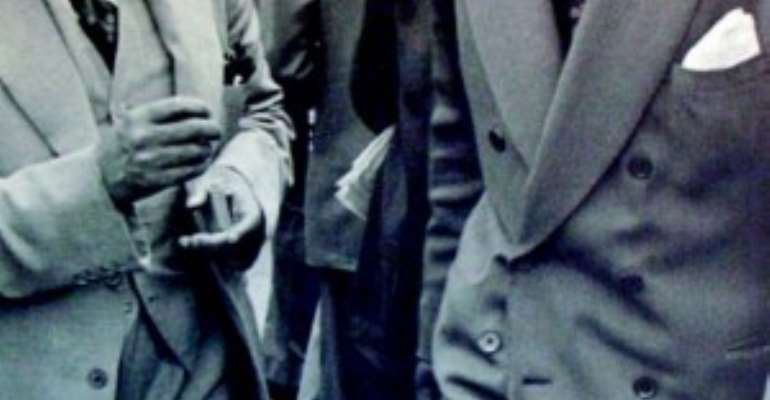Nelson Mandela (1918-2013): His Legacy

There is much to be said about Mandela's style of leadership and his ability to reconcile the seemingly irreconcilable. To focus on his charisma alone, however, is to miss the enormous feat that kept the diverse pressures within the ANC at bay, on target and disciplined enough to achieve a negotiated revolution. Yet, not to focus on his manner of leading, that is, not to focus on his charisma and its tricky consequences, would miss something about the character of the transition itself.
There is no space here to present a complex picture of the qualities ascribed by competing constituencies to his status from the field to the factory, from the rural homestead to the township house - suffice to say that a complex mythology surrounded the apocalyptic moment of his release from prison. The charisma ascribed to him was a result of a complex creation, a construction, an invention - both necessary and accidental in the anti-apartheid struggle.
Of course, the individual concerned had to be in some way an exemplary candidate to qualify for such figuration in the first place. On that, the biographical details of a Mandela provided ample booty: born of chiefly lines in the Transkei, one of the first black lawyers educated at Fort Hare and already by 1949 a leading voice in the ANC's youth league and its radical challenges to the movement; one of the few black professionals and a member of the new African middle-class in Johannesburg which was to re-define mass defiance and African nationalism in the 1950s; one of the leading voices in establishing the armed struggle and, not least, the de jure leader of the ANC; a martyr sentenced to life imprisonment, spending 27 years in prison.
Mandela left very little print behind too: various publications were compiled around the Rivonia trial with his famous address from the dock, at once defiant, republican and humanist.
Its text has remained crucial in understanding the ANC's 'open' and non-racial version of nationalism. As a text, it functioned to inspire, but it was hardly its intention to be a call to action, a revolutionary tract or a programmatic statement at all.
Instead, it explained to the hostile court, a court that could have hung him, that his was an African Nationalism pushed to violence and sabotage by the white regime.
This shift in the African National Congress and the Pan Africanist Congress, from defiance to the armed struggle, has met some social and historical scrutiny and critique. It has been argued that such a move was not necessary, and that the seeming closure and the belief that all legal avenues were exhausted was a political mistake that helped usher in the harshest of Apartheid's years.
It was only in the late 1970s to mid-1980s that the African National Congress solidified around a process - enthusiastically supported by the international anti-apartheid movement - that elevated Mandela to a special status as the apex and the medium of South Africa's liberation, through the famous 'Release Mandela Campaign'.
Personalising the movement, at a time of social insurrection in the country, with mass strikes and boycotts underway, with untold deaths, detentions and imprisonment, was met with a lot of critical comment inside South Africa.
